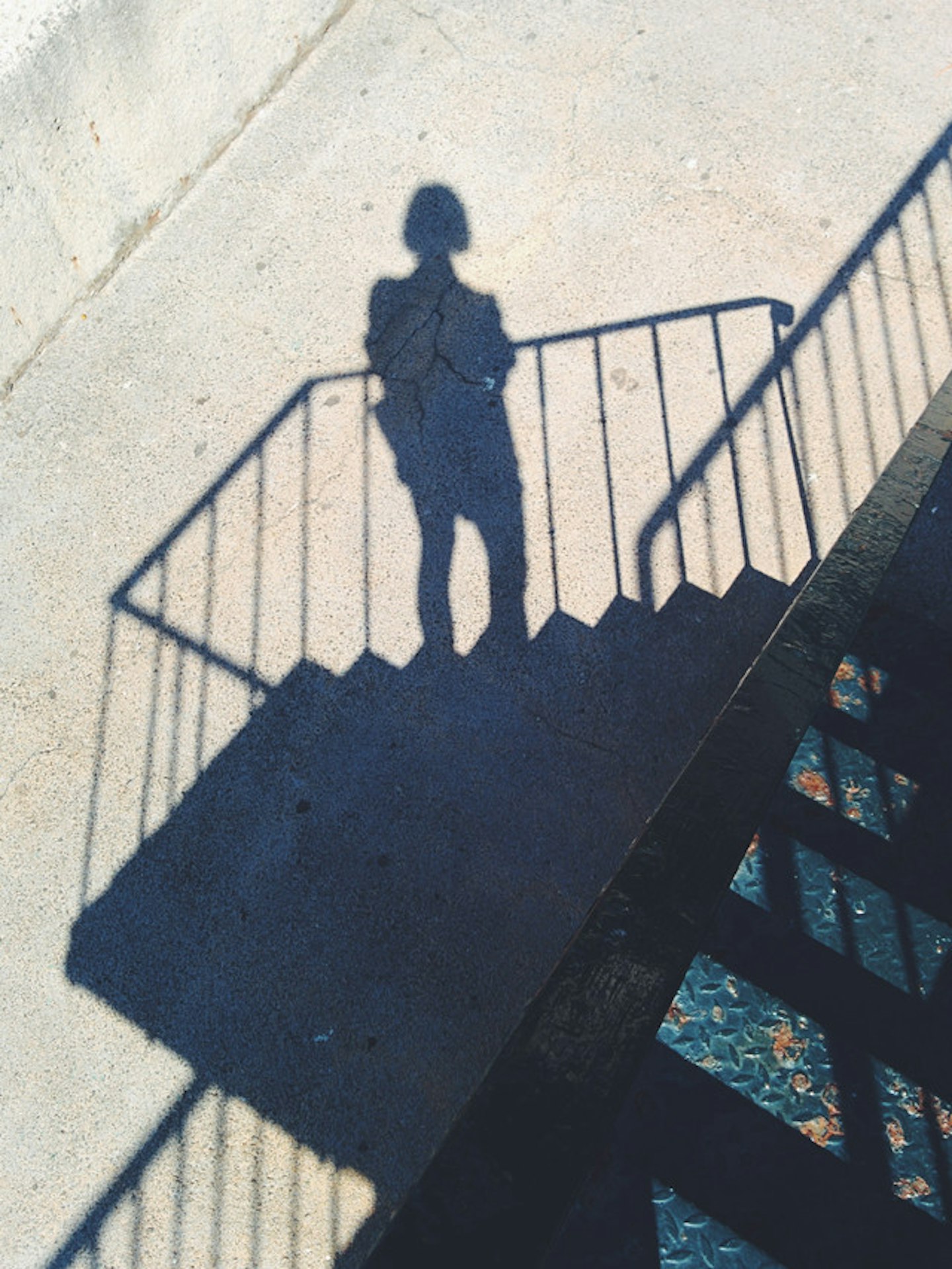If you think Instagram is about taking pictures of your nights out, you’re missing out. If you reckon Twitter is just for chatting to your mates… well, you and I need to have a coffee.
Social Media isn’t just about socialising anymore. It's become so much more powerful than that. It's become part of our identity. It's our safe space, our creative outlet and it's a career-builder.
For writers, Twitter is for finding interviews and case studies. For models, stylists and photographers Instagram is a portfolio. If social media is so important, why is it so easy to sabotage? Why, when you get the wrong kind of attention, is it still so hard to protect your life online? It seems that the safeguards on the Internet haven't yet caught up with the reality that we're all living our lives online.
Everybody, meet Ashley*. She works in social media and knows first hand how easily things can change, how you can go from enthusiastically posting on Instagram, to dreading the sound of your iPhone pinging. 'I’ve been dealing with an online stalker on and off for about two years,' she tells me. 'He’s done it all. Multiple fake accounts, spreading vicious rumours to my friends. Messaging my parents- about each other- imitating me and sending pictures of me to other men…' Gross. Unfortunately, Ashley is one of millions. According to the University of Bedfordshire, Cyberstalking is now more common than physical harassment. Halt Abuse deal with 50 to 75 new cases per week in the United States alone, and Journalists Resource found that 40% of Internet users have suffered some sort of abuse online.
UK Online Stalking Laws
The most simplistic definition of online harassment is the persistent badgering of someone sexually or otherwise. However, it can also be trying to ruin someone’s reputation, hacking, slandering or imitating them incessantly. It’s a new wave of stalking that plays right into the hands of the perpetrator. Because now, we’re always switched on. We’re all online and available 24 hours a day, 7 days a week. Our phones have become so imperative for our lives and our work that when you’re a victim of cyber stalking or harassment, wherever you go your abuser now goes with you. In other words, it’s a dream scenario for anyone who has a predilection for stalkerish behaviour and also happens to have an internet connection. They can cause maximum damage with minimum repercussions because when it comes down to it, online life is still relatively new. The authorities are still playing catch up with how to understand it, let alone deal with this kind of behaviour. Rachel Hormin from National Stalking Advocacy Service, Paladin sees this far too much 'the perpetrator is always 10 steps ahead of the police in terms of their understanding of technology,' she tells me. '…the police don’t seem to understand the nature of online social media platforms, and there seems to be very few specialists employed within the police to assist.'
When things started to bubble over and there was no option other than for Ashley to take action, the advice she got was to ‘report’ the abuse to Facebook and Instagram. But after sending over 40 reports in two days she just ended up feeling defeated. 'None of those report buttons really do anything to help your situation. On Instagram, only the person being imitated could report it, but he’d blocked me from all the accounts he made of me so I couldn’t do a thing.' For the next seven days she was not only bombarded with messages from her abuser but also concerned calls from friends who her stalker was adding to the fake profiles and commincating with. She spent most of her time trying to take down the fake profiles in order to limit the damage they were doing and anguish they were causing.
'Every time my phone went off I knew I’d have another situation to damage control. It was exhausting,' Ashley explains. '…another message to send to a friend or worse, someone in my industry. “Hi, I’m just getting in contact to let you know I have an online stalker and he is contacting everyone I follow at the moment. Please screenshot, block and delete him. This is my real account." Then came the inevitable question "but how do I know this is your account, not the other one?" I mean, why would anyone in my field want to work with me, knowing I can’t even keep my own social feeds problem free?' she says. After collecting 200 screenshots that week alone, Ashley went to the police. A four-hour witness statement and countless conversations later, she still didn’t feel like her case was being taken seriously.
'You’d think the personal trauma would be enough, but even when he was affecting my online career, the police were still unable or unwilling to come down hard on him. I guess because the perpetrator is physically removed from their victims’ real life they don’t see the damage. This just makes them become more persistent. What they want is to see a reaction online. On the flip side this is exactly why reports just aren’t being dealt with properly. Precisely because there’s no physical aspect, the authorities just don’t see online harassment as a top priority.' When you think about the fact that victims endure - on average - 100 incidents before they even report the abuse it's just not good enough.

Report Online Stalking
Megan has also been targeted by an online stalker whom she had met once in real life. His abuse began with text messages after she ignored a request for a date and escalated over years to include emails, messages on LinkedIn and the posting of her personal details on websites advertising sex services. 'I started getting a lot of weird calls,' she says. 'By the third one I asked them where they had got my details...there was a pixelated picture of a naked woman with my full name and phone number.' Her stalker followed this up with a fake ad on Gumtree with her details attached before posting her details on another explicit website, this time with a real photograph of her.
'I reported it to the police at every stage,' Megan says. 'Each time they concluded that the evidence was inconclusive. I felt like they didn't really care you know...nobody had died, they didn't think I was in any immediate danger. Every time he contacted me to harass me he was untraceable. Most recently he emailed me pornographic pictures from a fake address with my face photoshopped onto the bodies of naked women performing sex acts.'
Because Cyberstalking is such a grey area, cases are dragged out over huge lengths of time with no support or progress from the police. As if the harassment itself wasn't enough to deal with, the trauma of not knowing what is going to happen can cause just as much damage. When you’re waiting for something to be done, the constant worry is that online abuse will turn into real life horror. 'This guy only lived 5 minutes from my family home,' Ashley told me. 'I remember going back to see my family and having the worst nightmares; that annoying me online wasn’t enough for him. That he was coming to my house.' Sadly, there’s nothing unusual about how Ashley ended up feeling. Halt Abuse found that between 2000 and 2011, almost a quarter of online threats transferred over into real life situations.
Ashley put me in touch with one of the police officers who was working on her case, I asked them why it can take so long before there is a resolution or even just some action taken. 'The anonymity abusers enjoy makes it a hard process. Contrary to popular belief we don’t have the authority to break into someone’s account and look at their internet history. It’s a much more complicated and lengthy process. Tracking down and charging an internet abuser is hugely resource heavy and a time consuming case to deal with.' So when it comes down to it, the regulations and laws the authorities are working within just haven’t been updated to reflect our new online world. It needs to be made easier for them to act.
The Enduring Impact Of Online Harrassment And Stalking
The long term effects of being targeted by an online stalker are real and damaging. Megan says, 'In the years since the abuse first began I have definitely limited what I post online...with my work I could have a blog, more of a social media profile...but I don't want to put myself out there. I have thought about suing him for limiting my earning potential in this respect, it's not just the psychological impact! I think I know who he is, I'm not sure. Either way, I don't to put anything out there now that would to provoke him. '
Amongst all this doom and gloom, the good news is that Ashley’s case is finally being taken seriously but only after a long, long fight. When it’s so easy to find people online and take control of their reputation, it’s pretty clear that warnings and report buttons just aren’t enough, some big adjustments needs to be made. Laws should be clear cut when it comes to detailing what constitutes punishable abuse online. The protection of an abuser's right to privacy on their social media accounts when they're undermining someone else's? That needs to change. We have to act fast, because Cyberstalking is real and it’s ruining our ability to enjoy the very thing that makes our generation ours: social liberation, the joy of life online and the opportunities it creates.
Practical Advice If You're Experiencing Online Stalking
As it stands, when someone is harassing you online you are your own detective. It's never ever your fault and it shouldn't be your responsibility to take action. The law should be on the side of the victims of online abuse but until it catches up here are some things you can do if you find yourself in this situation:
-
**Report everything. Wherever you can report the content, messages and accounts involved. If your stalker is contacting other people get them to do the same. Report every incident. **
-
Arm yourself. You need all the ammo you can get. You’ll want to delete the messages to make them disappear, but don’t. Save, date and store everything you have. Create a folder and fill it with screengrabs. When you get sent an email on gmail that email also has a receipt file. You can click 'show origin' and see all of the email's metadata, including the IP address of the person who sent it. Save that, file it and send it to the police.
-
Secure your online world. Yes, it’s annoying having to type a password that is effectively Wingdings everytime you log in to Facebook, but it’s the first step in stopping your harasser becoming your hacker.
-
Get impartial advice. There are countless online services ready to give you practical advice and information. Paladin Service and Stalking Helpline on Twitter are a god send if you need advice fast. Talk to people you can trust.
-
**Know that it's OK to feel upset, frustrated and angry. **Megan says 'for a long time it appeared as though it didn't affect me, in a way the police and their attitude reinforced that but of course it did. There's no shame in that. I'm Asian and I try to remember this chinese saying, 'you're in the light and they're in the shadow'. That person is operating in the shadows.'
You might also be interested in:
Here's How Many Cases Of Revenge Porn Have Been Reported Since It Became Illegal Last Year
A New Survey Says Young Women Experience The Most Intense Forms Of Online Harassment** **
This article originally appeared on The Debrief.
